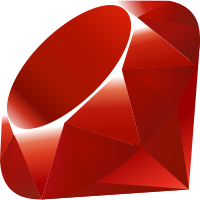If Ruby development is your thing, here at Red Hat we understand why. We make use of Ruby and Ruby on Rails in our products and provide a range of tools to get your Ruby applications up and running. Also, we offer you the opportunity to take your Ruby skills a little further, as we have projects you can get involved in.
Read on to discover how we use Ruby in OpenShift by Red Hat®, our Platform-as-a-Service (PaaS) portfolio that includes hosted, on-premise, and community offerings. Then see how we support your Ruby coding in Red Hat Enterprise Linux®, and with Red Hat Software Collections, helping you get your applications up and running in the cloud with OpenShift by Red Hat. Finally, you'll find out how the OpenShift Origin project can use your Ruby skills, so you can contribute to this global, free software project.
How we use Ruby: OpenShift by Red Hat
OpenShift by Red Hat is our PaaS portfolio. It includes a version for enterprises to host their own platform, a hosted version open to developers worldwide, and an open source project with the goal of creating the next generation of PaaS software.
OpenShift provides features to manage user logins, DNS, application state, and orchestrate applications. Hosted applications are stored and served in Gears, which control the CPU, RAM, and base storage available to each application. To provide for a wide variety of programming languages, database engines, and various management tools each application is associated with one or more cartridges (a pluggable component containing a language or an environment).
All of these features are delivered through a code-base that relies predominantly on Ruby.
Learn more at Ruby for OpenShift by Red Hat.
Supporting your code: Red Hat Enterprise Linux and Red Hat Software Collections
Ruby is included in Red Hat Enterprise Linux releases 5 and 6, which offer you Ruby 1.8, and Red Hat Enterprise Linux 7, which includes Ruby 2.0. This option provides you with a highly stable implementation and a long 10-year production cycle.
However, where you need greater agility, more rapid updates, and the latest runtime features, you need look no further than Red Hat Software Collections. Software collections provide access to recent, stable versions of some of the most popular dynamic languages, open source databases, web servers, and more. The primary features of Red Hat Software Collections are the ability to have multiple versions of software on one OS, certainty that the software is the same across versions of the OS, and the option to refresh components more frequently than the underlying OS.
Among the components offered in Red Hat Software Collections are Ruby 1.9.3, which includes Rails 3.2.8, and Ruby 2.0 with a separate Rails 4.0 collection. Red Hat Software Collections run on both Red Hat Enterprise Linux 6 and 7. With these options, you can build and deploy your Ruby applications with Red Hat Enterprise Linux on-premise or, as these collections become available as OpenShift cartridges, in the OpenShift hybrid cloud.
Learn more on the Red Hat Software Collections page of the Red Hat Enterprise Linux Developer Program.
Getting your applications running: OpenShift by Red Hat
When it comes to running your Ruby applications, the Ruby stacks from Red Hat Software Collections are available as cartridges in OpenShift, so you can easily host your applications publicly or within your enterprise. With OpenShift, you don't have to worry about how to provision, manage, and scale your applications because OpenShift does this for you. This means you are free to focus on your code and delivering the best features and functions to your users.
Because OpenShift is based on Red Hat Enterprise Linux, you can use it to host your Ruby applications and Ruby on Rails web applications - everything from commercial and open source Ruby applications to your own custom code and applications. For smaller applications, OpenShift is available at no cost.
Learn more about OpenShift by Red Hat.
Get involved: the OpenShift Origin project
OpenShift Origin is the open source upstream of OpenShift, building the next generation application hosting platform. Open source developers contribute to the project in two ways, by:
- Adding new cartridges to provide runtimes and frameworks to the project and creating related Quickstarts codebases built specifically to run on OpenShift with one or more cartridges.
- Hacking on the OpenShift runtime in Ruby.
When it comes to source side hacking, OpenShift Origin is actively undertaking work in the areas of the user interface, runtime, brokers, and support for release engineering.
Learn more about how to get involved by reviewing the OpenShift Origin Roadmap, reading the OpenShift Origin Contributor Guidelines, and visiting OpenShift Origin.
BTW - stay tuned for similar articles on other programming languages, too.
Future updates of this can be found here.
Last updated: September 19, 2023

